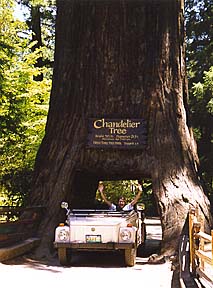 There are some fundamental military principles being ignored in Afghanistan. When one invades another’s territory, one does it as a liberator, with the best interests of the soon to be conquered people at heart and the hated enemy the obstacle. Classic military psychology. When we trained as subalterns years ago, we studied countless campaigns and learnt that one began with propaganda, then hit with maximum prejudice on several fronts, with full logistic support, that one employed psy-ops negatively on the enemy and positively towards the locals, as the beloved liberators. Then the non-military moved into any newly liberated area and instituted an efficient, altruistic infrastructure, training locals, building roads, hospitals, factories and schools, providing paid work – all these had to be better than before. This is not happening in either Iraq or Afghanistan and this resulted in Capt. Docherty's question [BBC Sep 10], ‘Why not?’ This question is addressed here.
There are some fundamental military principles being ignored in Afghanistan. When one invades another’s territory, one does it as a liberator, with the best interests of the soon to be conquered people at heart and the hated enemy the obstacle. Classic military psychology. When we trained as subalterns years ago, we studied countless campaigns and learnt that one began with propaganda, then hit with maximum prejudice on several fronts, with full logistic support, that one employed psy-ops negatively on the enemy and positively towards the locals, as the beloved liberators. Then the non-military moved into any newly liberated area and instituted an efficient, altruistic infrastructure, training locals, building roads, hospitals, factories and schools, providing paid work – all these had to be better than before. This is not happening in either Iraq or Afghanistan and this resulted in Capt. Docherty's question [BBC Sep 10], ‘Why not?’ This question is addressed here.Saturday, September 30, 2006
[afghanistan] counter-productive strategy scrutinized again
 There are some fundamental military principles being ignored in Afghanistan. When one invades another’s territory, one does it as a liberator, with the best interests of the soon to be conquered people at heart and the hated enemy the obstacle. Classic military psychology. When we trained as subalterns years ago, we studied countless campaigns and learnt that one began with propaganda, then hit with maximum prejudice on several fronts, with full logistic support, that one employed psy-ops negatively on the enemy and positively towards the locals, as the beloved liberators. Then the non-military moved into any newly liberated area and instituted an efficient, altruistic infrastructure, training locals, building roads, hospitals, factories and schools, providing paid work – all these had to be better than before. This is not happening in either Iraq or Afghanistan and this resulted in Capt. Docherty's question [BBC Sep 10], ‘Why not?’ This question is addressed here.
There are some fundamental military principles being ignored in Afghanistan. When one invades another’s territory, one does it as a liberator, with the best interests of the soon to be conquered people at heart and the hated enemy the obstacle. Classic military psychology. When we trained as subalterns years ago, we studied countless campaigns and learnt that one began with propaganda, then hit with maximum prejudice on several fronts, with full logistic support, that one employed psy-ops negatively on the enemy and positively towards the locals, as the beloved liberators. Then the non-military moved into any newly liberated area and instituted an efficient, altruistic infrastructure, training locals, building roads, hospitals, factories and schools, providing paid work – all these had to be better than before. This is not happening in either Iraq or Afghanistan and this resulted in Capt. Docherty's question [BBC Sep 10], ‘Why not?’ This question is addressed here.[health]12 dangerous food additives to avoid at all costs
 For a start, food colorings that have been linked to cancer and tumors of the brain, thyroid, adrenal gland and kidney in animal studies. With any processed food you run the risk of coming across additives, and reading through ingredient labels can be like trying to decode a puzzle. Of course, eating largely fresh, whole foods is the best way to stay away from unsavory additives, but, if you absolutely must include processed foods in your diet, the following additives are ones you surely want to stay away from. Look for them on ingredient labels and if one turns up, take a pass. 12 point list here.
For a start, food colorings that have been linked to cancer and tumors of the brain, thyroid, adrenal gland and kidney in animal studies. With any processed food you run the risk of coming across additives, and reading through ingredient labels can be like trying to decode a puzzle. Of course, eating largely fresh, whole foods is the best way to stay away from unsavory additives, but, if you absolutely must include processed foods in your diet, the following additives are ones you surely want to stay away from. Look for them on ingredient labels and if one turns up, take a pass. 12 point list here.[first blogfocus] sunday 0700 london time
 The business of blog roundups is much on the mind. I have no wish to [and anyway how could I], emulate Tim Worstall's accepted Britblog roundup on Sunday afternoons. DK has his Swearathon starting this evening and so mine needs a new focus. The way to go seems to be to zero in on one and possibly two issues only, based on what other bloggers have posted this week and work their comments into a whole. Anyway, I'll give this a try tomorrow and call it [blogfocus] what the bloggers said this week. Sunday, 0700, London time.
The business of blog roundups is much on the mind. I have no wish to [and anyway how could I], emulate Tim Worstall's accepted Britblog roundup on Sunday afternoons. DK has his Swearathon starting this evening and so mine needs a new focus. The way to go seems to be to zero in on one and possibly two issues only, based on what other bloggers have posted this week and work their comments into a whole. Anyway, I'll give this a try tomorrow and call it [blogfocus] what the bloggers said this week. Sunday, 0700, London time.[mongolia news] marmot meat poisoning and secret airport renaming
 In this blog’s first and possibly last venture into accessing the latest news from Mongolia, comes this, grammatically untouched: A 20 years old young lady who just enrolled college locates in Tsetserleg (center of Arkhangai aimag) had high fever for 4-5 days and said she ate marmot meat recently. Doctors diagnosed it might be plague. [by Tsatsaa] Poor girl. I have another one here, if you're interested: Buyant Ukhaa airport has without much publicity been renamed Chinggis Khaan International Airport. Unknowning travellers were surprised to hear upon touchdown the pilot's announcement mentioning this new name. You would most likely be at least a little surprised to fly into an airport which has changed its name en route and never told anyone about it. Mongolian News - what do you think? Continue with it, unknowning reader? Also, I'd love to do a post in Stranglish [strangled English].
In this blog’s first and possibly last venture into accessing the latest news from Mongolia, comes this, grammatically untouched: A 20 years old young lady who just enrolled college locates in Tsetserleg (center of Arkhangai aimag) had high fever for 4-5 days and said she ate marmot meat recently. Doctors diagnosed it might be plague. [by Tsatsaa] Poor girl. I have another one here, if you're interested: Buyant Ukhaa airport has without much publicity been renamed Chinggis Khaan International Airport. Unknowning travellers were surprised to hear upon touchdown the pilot's announcement mentioning this new name. You would most likely be at least a little surprised to fly into an airport which has changed its name en route and never told anyone about it. Mongolian News - what do you think? Continue with it, unknowning reader? Also, I'd love to do a post in Stranglish [strangled English].[hermes] british pension fund cleared of stock manipulation
Hermes Pensions Management Ltd., manager of the UK's largest pension account, has said it was cleared by a Seoul court of stock manipulation, averting South Korea's first conviction of an overseas fund. The company said it was pleased. The ruling may ease concern that foreign investors face a hostile political climate in Asia's third-largest economy. Dallas-based Lone Star Funds' sale of Korea Exchange Bank for 6.95 trillion has also been delayed by a prosecutors' probe. Hank Morris, a director of Industrial Research and Consulting, who advises investors abroad on putting money into South Korea says: "It's a good sign. I think the foreign investment community will appreciate it.''
[tallest tree] discovered on september 8th
 Chandelier tree is also tall
Chandelier tree is also tallAt 112.83 metres or 370 feet tall in 2004 and still growing, Stratosphere Giant, of the species Sequoia sempervirens, located in the Humboldt Redwoods State Park, California, USA, was considered the tallest tree until September 8th, 2006 . The exact locations of the tallest trees have not been disclosed for fear that human traffic would upset the ecosystem. Hyperion, discovered by researcher Chris Atkins and amateur naturalist Michael Taylor in a remote area of the Redwood National Forest purchased during the Carter Administration, is the name of the redwood tree in Northern California that has now been confirmed to measure 115.5 m (379.1 feet), which ranks it as the world's tallest living thing at this moment. The abundant moisture and moderate temperatures of coastal northern California and extreme southern Oregon allow the redwood to flourish but annual precipitation seems less important than the frequent summer fog. The warm, moist marine air over the cold surface of the Pacific creates fog almost daily in summer in the forest. The fog decreases the trees' loss of water through evaporation and transpiration and adds moisture to the soil. So the coast redwood is generally restricted to this coastal fog belt.
Subscribe to:
Posts (Atom)